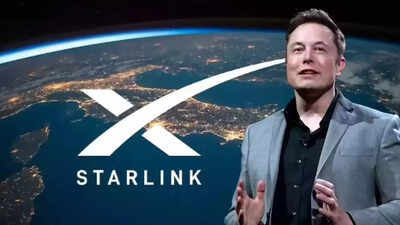Elon Musk’s Starlink makes a bold move in India: Nine satellite gateways to boost India’s internet amid strict security rules |

Elon Musk’s satellite internet venture, Starlink, is preparing for a significant expansion into India. The company plans to establish nine gateway earth stations across major Indian cities, including Mumbai, Noida, Chandigarh, Hyderabad, Kolkata, and Lucknow. These stations are crucial infrastructure for Starlink’s satellite communication (satcom) services and will enable the comninpany to test and demonstrate its systems in compliance with Indian national security requirements.This move is part of a larger effort by Starlink to offer high-speed satellite internet services in India by late 2025 or early 2026. However, the rollout is subject to strict regulations, reflecting the sensitive nature of satellite communications in the context of national security.
Starlink’s nine gateway stations to boost high-speed satellite internet across India
Starlink’s plan involves building nine ground-based gateway stations that will serve as critical nodes for its satellite network. These stations connect satellites in low Earth orbit to terrestrial networks, ensuring seamless internet connectivity. By positioning these stations in major metropolitan areas, Starlink can optimise coverage and provide high-speed, low-latency internet services to urban and rural regions alike.The company has applied for provisional approval of 600 gigabits per second (Gbps) capacity over India through its Gen 1 satellite constellation. This spectrum has been temporarily assigned to Starlink to allow testing and compliance demonstrations, particularly related to national security protocols.
Starlink targets India’s retail market with strategic expansion amid supportive policy environment
Starlink’s entry into India represents a strategic move for SpaceX, helping the company offset its exclusion from China, where foreign satellite operators face strict restrictions. As per Bloomberg reports, by building a large-scale network in India, Musk aims to establish a strong presence in one of the world’s largest internet markets, with over 900 million potential users. Unlike its competitors, which primarily focus on enterprise and government clients, Starlink plans to target retail consumers directly, reaching tens of millions in rural areas who lack reliable high-speed internet, while appealing to affluent, tech-savvy users in urban centres seeking faster, more dependable broadband. This expansion marks Musk’s second major business venture in India after Tesla, and his earlier meetings with Prime Minister Modi reflect India’s welcoming stance toward global technology providers. In March, telecom minister Jyotiraditya Scindia reaffirmed India’s commitment to a mix of terrestrial, fiber, and satellite communications, signalling a supportive policy environment for international companies like Starlink.
India imposes strict rules on Starlink to safeguard national security and data integrity
Satellite communication is inherently sensitive because it can transmit vast amounts of data over wide areas, including potentially across borders. Misuse of satellite networks could pose a threat to national security, which is why the Indian government has imposed stringent operational rules for Starlink and other satellite service providers.Under these rules, only Indian nationals are permitted to operate the gateway earth stations until foreign staff obtain security clearances from the Ministry of Home Affairs. Furthermore, all data generated during testing must remain within Indian territory. Starlink is also required to regularly share technical details of its deployed equipment with authorities to ensure compliance and transparency.
Starlink’s roadmap in India
Having received provisional approvals, Starlink is now positioning itself for a commercial launch in India, expected by late 2025 or early 2026 as reported by Bloomberg. The company’s infrastructure, including the nine gateway earth stations, will be crucial for providing reliable, high-speed satellite internet services across the country.By adhering to India’s strict security measures, Starlink aims to establish trust with local authorities while offering an alternative to traditional internet service providers. The success of these operations could pave the way for broader adoption of satellite internet services in India, especially in rural and underserved areas.Also Read | “Take vacations before October 29!”: Harvard astrophysicist warns as 3I/ATLAS sparks debate over possible artificial origin






